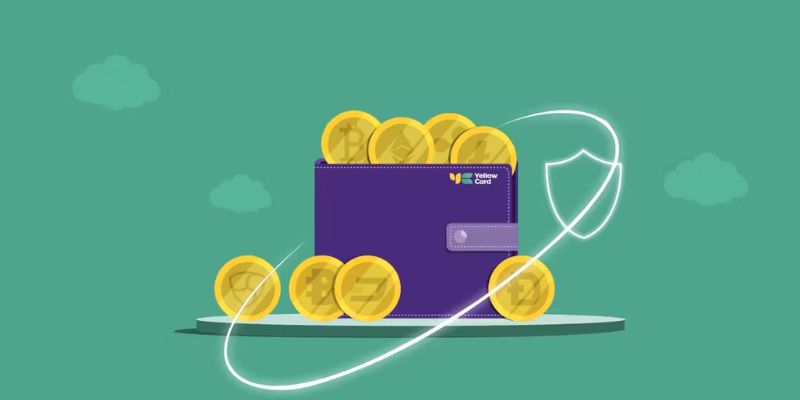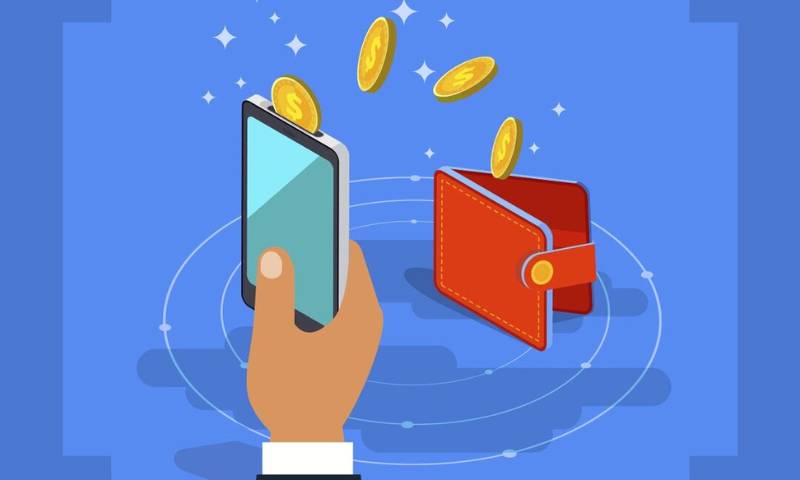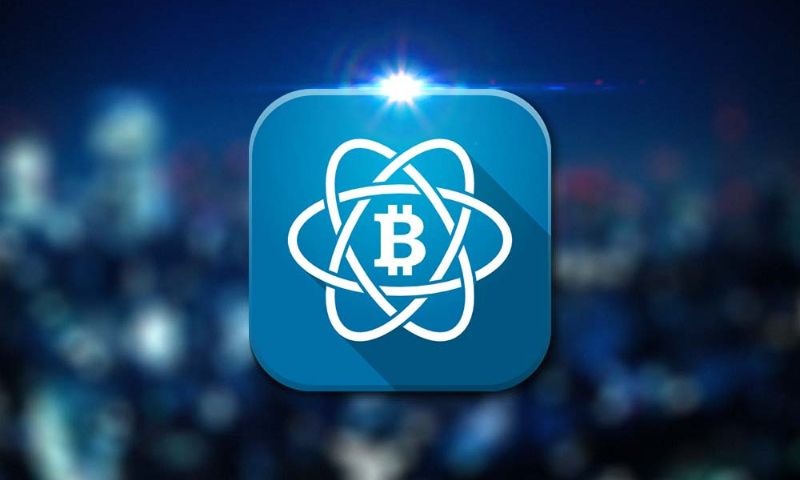Your money, your way – that’s the creed of every crypto enthusiast. But let’s not forget, safeguarding your digital treasures is vital. That’s where the right crypto wallet features come into play. Think of it as a fortress for your coins, and every fortress needs iron-clad walls and a wise ruler to keep threats at bay. Ready to learn the ropes of essential security protocols, pick the most suited wallet, and juggle usability without giving up on safety? This guide will make you the master of your crypto domain, ensuring every transaction you make is a step forward in this digital frontier. Dive in, and let’s fortify your crypto experience together.
Essential Security Protocols for Your Crypto Wallet
Advanced Multi-signature and Biometric Authentication Measures
In your crypto world, security is king. We don’t play around when it comes to keeping your crypto safe. One must-have is multi-signature wallets. What’s that? Think of it like a bank vault that needs two keys to open. Not one person holds all the power. You need a group okay to move funds. This setup is gold for anyone sharing a wallet.
Now, let’s chat about biometric authentication. Your unique features, like your fingerprint or face, lock down access. It’s like having a high-tech guard check your ID before you can get into your wallet. This tech keeps the bad guys out. Now, think about combining them. You get a shield that’s tough as nails.
Private Key Management and Encrypted Backup Solutions
Keeping your private key safe is like protecting a secret treasure map. If bad folks get it, they snatch your treasure, your precious crypto. Here’s the deal: never show your key to anyone. Lock it up tight using encrypted backup solutions. What’s encryption? It’s a way to scramble up your key so only you can read it. Even if someone sneaks in, they won’t crack the code.
Backing up your key means you’ve got a plan B if things go south. Everyone trips up sometimes. Phones get lost, hard drives crash. If that happens, you can still get to your crypto. How do you keep it safe? Store it somewhere only you know, like a hidden safe or a secret spot no one else can find. And remember, this is a race you can’t afford to lose. Make sure you’re the first and only person to reach your backup if needed.
Lessons we learn here? Multi-signature wallets mean power in numbers. Biometric stuff is personal guard dog tech. Private key management is your map to the treasure. Encryption is your secret code. Backup is your safety net. With these, you’re not just smart; you’re crypto smart.
Choosing the Right Wallet: Hardware Benefits and Storage Considerations
Comparing Hardware Wallet Advantages with Hot vs Cold Storage
When you pick a wallet for your crypto, think about where it will store your coins. With hardware wallets, you get a small device that keeps your crypto offline. This means hackers can’t reach it through the internet. It’s like keeping your money in a safe rather than your pocket. Hardware wallets come with strong locks – such as multi-signature access. Only people with the right set of keys can open it. This is safer than hot storage, which is online, all the time. Even if hot wallets are handy for quick payments, they can be risky. They face threats from hackers every day.
Cold storage, wallet out of the net, is the secure way to go. A hardware wallet is an example of cold storage. It’s like a vault for your crypto. You connect it to your computer when you need to. It asks for your key, like a password, every time. Lose this key, and getting back into your wallet is not easy. So keep your keys safe and have backups, like a seed phrase. The seed phrase is like a master key. It can get you back into your wallet if you lose your key.
Hot wallets are not all bad, though. For small amounts, or trading, they work fine. As long as you have good passwords and two-factor authentication, it should be okay for day-to-day use. But for saving large amounts? Use a hardware wallet. Remember, cold storage keeps your crypto safe, while hot storage is good for ease of use.
Implementing Hierarchical Deterministic Wallets for Enhanced Security
Let’s talk about HD wallets or hierarchical deterministic wallets. These are like advanced safety features for your wallet. Every time you make a transaction, they create a new address for your crypto. Old addresses still work, but new ones help keep your wallet secure and private. People can’t track your money as easily. HD wallets make a whole tree of keys from a single seed phrase. This phrase is a bunch of random words that’s easy to write down and keep safe.
Think of it like how a tree grows. The seed is the start, and the branches are all the keys and addresses the wallet makes. If you lose your wallet, the seed phrase can bring everything back. Very useful and very safe. It’s a must for anyone serious about keeping their crypto secure. And the best part? The wallet does all the hard work. You just need to keep your seed phrase hidden and safe.
Using HD wallets, you get a lot of privacy and security. They are easy to use, too. Tech wizards make these wallets user-friendly. You don’t have to be a rocket scientist to stay safe with your crypto. Just remember to write down your seed phrase and keep it in a safe place. That’s your safety net for your digital gold.
Maximizing Usability Without Compromising on Security
Balancing Wallet User-Friendly Interface with Robust Security Features
When it comes to crypto wallets, we need a simple interface without skimping on security. Think of it as a vault that’s easy to open when you know how, but super tough for anyone else. That’s where biometric authentication makes its mark. Just like your phone unlocks with your face or fingerprint, your crypto wallet can do the same. This high-tech lock keeps your coins safe.
But what about getting in when you’re not around, like if you lost your device? That’s where a seed phrase helps you. It’s like a master key that can bring back your wallet from the abyss. Just make sure to keep that phrase in a place as safe as your heart’s secrets!
Now, how does your wallet keep snoops from tracking your treasure? Picture this: You have a cool invisibility cloak for your wallet’s address. This privacy feature keeps your wallet address changing so no one can link it to you. It’s like having secret passages that only you can navigate.
Have you heard about multi-signature wallets? Imagine a chest that needs three keys to open. You keep one, your trusted buddy has another, and a secure service holds the third. To open this crypto chest, you need at least two out of three keys. It’s teamwork for your wallet’s security!
Streamlining Transaction Fees and Exchange Integration
Nobody likes fees, right? Well, with some smarts, you can manage wallet transaction fees without stress. It’s all about timing and being choosy with your transactions. When the network isn’t too busy, and fees drop, that’s your moment to shine. This way, you keep more coins in your pocket.
Then there’s the magic trick of turning your real money into crypto without leaving your wallet. This is what “fiat to crypto conversion” is all about. Imagine feeding a paper bill into a machine and getting shiny digital coins out instantly. This caters to both newbies and pros in the crypto world.
Lastly, we’ve all heard about the cold vs. hot storage debate, right? Cold means offline, like a secret bunker where you stash your crypto. It’s super secure but not so easy to use every day. Hot storage is like your wallet in your back pocket, always on and ready for action. Here’s the kicker: the right wallet gives you both. You can have everyday use and an ironclad safe room for your big stash.
Remember, a crypto wallet should be a friendly companion, not a confusing puzzle. It’s possible to mix simple design with top-notch security. We can keep our cyber pockets zipped up tight and still enjoy the ease of flipping through our digital bills and coins. A good wallet keeps things smooth and your mind at ease. Aim for a wallet that’s a guardian and an assistant, all rolled into one.
The Future of Wallet Technology: Interoperability and Customization
Exploring Decentralized Wallet Benefits and Multi-Currency Support
Decentralized wallets give you power over your money. These let you keep many types of currency. Think of it as a multi-tool for your digital dollars, euros, bitcoins, and more. They work on different devices, so you always have access. It’s like having a magic key ring with keys for every lock in town. Decentralized wallets also let you transact anonymously, keeping your buys and sells private. This freedom means no one else can move your money — only you. Isn’t that neat?
You control who sees your financial moves. Private keys are secret codes that let you spend your coins. Think of this like a secret handshake that only you and your wallet know. If you keep these safe, no one can take your cash.
Now, what about keeping lots of different coins? Well, just like a video game character with a bag full of tools, decentralized wallets let you hold different cryptocurrencies. You’re like a digital-age collector, and your wallet is your treasure chest. Let’s say you’ve got some bitcoin, ether, and maybe a splash of litecoin. A good wallet holds all these with ease. It’s your personal bank, right in your pocket.
What about when you browse the web? Cookies let sites remember you. Wallets can keep you safe from this, too, by mixing up addresses. It’s like wearing a new disguise each time you go out. Sneaky, but smart.
And fees? Nobody wants to pay too much to move their own money. Decentralized wallets help you find the best deal. Like a smart shopper, you can choose how fast you want your transaction to go through and how much you’re willing to pay for that speed.
Advancing User Control with Smart Contract Functionalities and Wallet Customization Options
A wallet that’s yours, through and through? Yes, please! Customization is the name of the game. You can set rules with smart contract features. It’s like making tiny robots inside your wallet that work for you. They could auto-pay bills, split dinner costs with pals, or sell coins when the price is right.
For all the tech-savvy folks, open-source software for wallets is a dream come true. You can peek under the hood and even tweak things. If you know your coding stuff, you can make your wallet sing and dance, just the way you like it.
Staking coins is also a cool thing. It’s like planting a money tree in your wallet that grows more coins. This happens right inside your wallet, safe and sound. You can watch it grow in watch-only mode. That’s like having a window to peek at your garden without stepping outside.
Smart wallets are like your trusty sidekick. They can read QR codes with a quick zap. This makes paying for things quick and easy. It’s like being at the checkout line with your money ready to go, no delays.
And you want things to run smooth and snappy, right? Wallet optimization makes everything work fast. Like a pit crew in a race, it keeps your wallet running at top speed.
In sum, wallets are getting smarter, safer, and more fitting for your needs. The future is all about wallets that work just right for you. Keep your eyes peeled for these features, and you’ll be ahead of the game!
In this post, we tackled keeping your crypto wallet safe. We covered key security steps like multi-sign and biometric checks, and how to keep your private key and backups safe. Then we looked into how choosing the right wallet, like hardware ones, and understanding storage types helps you. We discussed making wallets easy to use but still secure and how to cut costs on transactions. Lastly, we explored the wallet’s future, looking at how it might change with new tech like decentralized systems and smart contracts. Stay sharp and keep your crypto secure. Remember, a strong wallet setup means peace of mind in the digital currency world.
Q&A :
What are the essential features of a crypto wallet?
A reliable crypto wallet should prioritize security, which means it offers features like two-factor authentication (2FA), multi-signature support, and hardware wallet compatibility. An intuitive user interface is crucial for ease of use, while the ability to backup and restore your wallet ensures you can recover your assets if anything goes wrong. Compatibility with multiple cryptocurrencies and integration with exchanges can provide flexibility and convenience for users looking to trade or manage diverse portfolios.
How does a crypto wallet ensure the safety of my digital assets?
Crypto wallets safeguard your assets through a combination of advanced cryptographic techniques, such as private and public keys that offer secure access to your cryptocurrency. Features such as encrypted passwords, biometric authentication, and cold storage – where the wallet is kept offline – further protect your funds from unauthorized access and online threats. Regular software updates and the option for insurance policies can also contribute to a wallet’s overall security framework.
Can I access and manage multiple cryptocurrencies in a single crypto wallet?
Many modern crypto wallets are designed to handle multiple cryptocurrencies, enabling users to store, send, and receive different types of digital assets from one place. These multicurrency wallets support cross-chain compatibility and often feature built-in exchanges to easily convert between various cryptocurrencies without needing to use an external service.
What are the benefits of having a hardware wallet as a feature of a crypto wallet?
A hardware wallet, as part of a crypto wallet’s features, provides enhanced security by storing the user’s private keys on a physical device that remains offline, making it impervious to online hacking attempts. These devices typically require physical confirmation for transactions, reducing the risk of unauthorized or accidental transfers. Furthermore, many hardware wallets are compatible with multiple cryptocurrencies and can be used in conjunction with various software wallets for added convenience and backup options.
Is it possible to recover my crypto wallet if I lose my device or forget my login details?
Most crypto wallets incorporate recovery mechanisms to help users regain access to their assets even if they lose their device or forget their login credentials. This can involve recovery seeds – usually a series of words generated by your wallet – which must be written down and stored securely at the time of wallet creation. As long as you have your recovery seed or passphrase, you can restore your wallet’s contents to a new device or software. However, it is critical to keep this information private, as anyone with access to your recovery seed can potentially access your funds.






